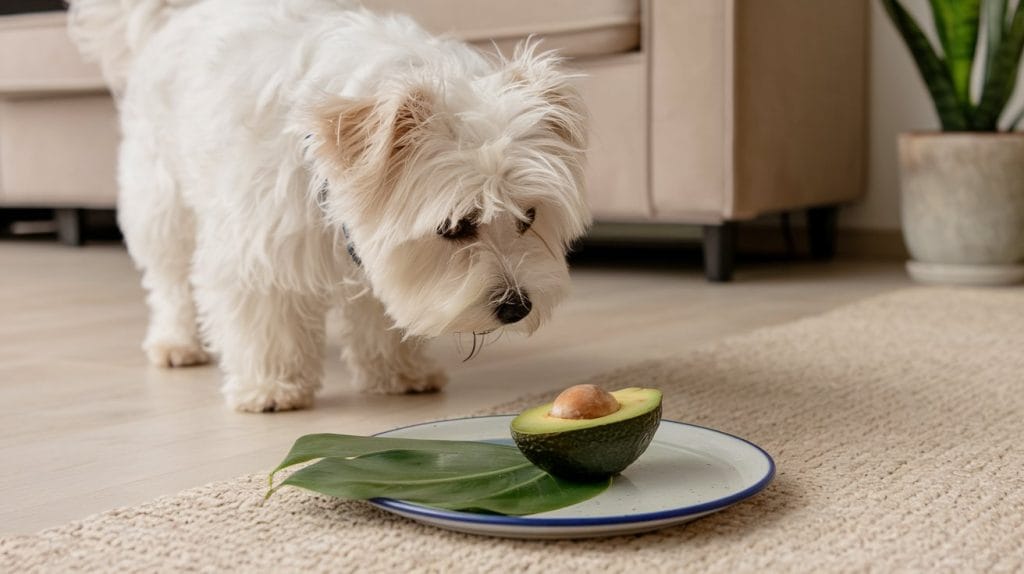Avocados have gained immense popularity as a nutritious superfood, but many pet owners wonder: can dogs eat avocado? This question has sparked debate among veterinarians and dog lovers alike. As more people incorporate avocados into their diets, it’s crucial to understand the potential effects these fruits may have on our canine companions.
The matter of whether avocado is good for dogs isn’t straightforward. While avocados offer numerous health benefits for humans, they contain compounds that might pose risks to dogs. This article aims to explore the nutritional value of avocados, examine the potential dangers for dogs, and provide guidance on safe ways to include this fruit in a dog’s diet, if at all. By the end, readers will have a clear understanding of the health implications of feeding avocados to their furry friends.
Table of Contents
The Nutritional Value of Avocados: Can Dogs Eat Avocado?
Avocados have gained recognition as a nutrient-dense superfood for humans, but can dogs eat avocado? These fruits are packed with essential nutrients that can contribute to canine health. Avocados contain a variety of vitamins, including A, E, C, and K, which support vision, skin health, immune function, and blood clotting. They also provide minerals like potassium, which is crucial for muscle function and heart health. But when asking, “can dogs eat avocado?”, it’s important to understand both the benefits and risks.
The fats in avocados are particularly noteworthy. They contain monounsaturated fats, which can promote heart health and help control blood glucose levels. Additionally, avocados offer omega-3 and omega-6 fatty acids, which support brain function, reduce inflammation, and promote joint health. The combination of soluble and insoluble fiber in avocados can benefit digestive health, potentially aiding dogs with sensitive stomachs.
However, while dogs can eat avocado in limited amounts, there are risks to be aware of. The high-fat content may cause digestive upset or even pancreatitis in some dogs. Moreover, all nutrients found in avocados are available in other, more appropriate food sources for dogs.
Potential Risks: Can Dogs Eat Avocado Safely?
When considering whether dogs can eat avocado, it’s essential to weigh the potential risks. The primary concern is persin, a natural fungicidal toxin found in avocados. Although dogs are more resistant to persin than other animals, large amounts can still cause health issues. Persin is concentrated in the leaves, bark, pit, and skin of the avocado, with smaller amounts in the flesh.
The high-fat content in avocados can lead to digestive upset, including vomiting and diarrhea. In some cases, it may even trigger pancreatitis, a serious and potentially fatal condition. Additionally, the avocado pit presents a significant choking hazard and can cause intestinal blockages if swallowed. So, can dogs eat avocado? Yes, but with extreme caution and only in small quantities.
Safe Ways to Feed Avocado to Dogs: How Can Dogs Eat Avocado?
If you’re wondering how can dogs eat avocado safely, the best approach is to give them only the flesh of the fruit, avoiding the pit, skin, and leaves, which contain higher concentrations of persin. It’s crucial to limit the amount given, as one medium-sized avocado contains approximately 320 calories and 29 grams of fat. Dog owners should follow the 90/10 rule, ensuring that 90% of a dog’s nutrition comes from high-quality dog food, with treats like avocado making up the remaining 10%.
When introducing avocado, start with small amounts and monitor your dog’s response over a few days to ensure no adverse reactions.
What to Do If Your Dog Eats Avocado?
So, what should you do if your dog eats avocado? The owner’s response depends on the amount and part of the fruit ingested. If your dog eats a small amount of avocado flesh, monitoring for symptoms like vomiting, diarrhea, and abdominal discomfort may suffice. However, if your dog consumes a whole avocado, including the pit, immediate veterinary attention is crucial.
The pit can cause choking or intestinal blockages, requiring emergency procedures such as endoscopy or surgery. If you notice any signs of distress or if your dog has eaten large quantities of avocado, contact your veterinarian promptly.

Wrap-up
Avocados’ place in a dog’s diet remains a complex issue with both potential benefits and risks. While these fruits pack a nutritional punch, their high fat content and the presence of persin can have an impact on canine health. Dog owners need to weigh the pros and cons carefully, considering their pet’s individual needs and health status. The safest approach is to offer only small amounts of avocado flesh, if at all, and always under veterinary guidance.
To sum up, responsible pet ownership involves making informed decisions about our furry friends’ diets. When it comes to avocados, moderation and caution are key. By staying alert to the possible risks and knowing how to respond if a dog consumes too much avocado, owners can better protect their pets’ well-being. As with any dietary changes, it’s crucial to consult with a veterinarian to ensure the best nutritional choices for our canine companions.
FAQs
What should I do if my dog consumes avocado?
If your dog ingests avocado pulp, it’s essential to monitor them closely for the next 24-48 hours for any signs of vomiting, diarrhea, or abdominal discomfort. Early symptoms might be mild but can escalate to severe conditions like pancreatitis, which is potentially fatal. Contact your veterinarian if any of these symptoms appear.
Is there a safe amount of avocado that a dog can consume?
The avocado pit is particularly hazardous as it’s indigestible and can cause intestinal blockages. If your dog accidentally eats a small piece of avocado, it’s generally not harmful, but avocados should not be a regular part of a dog’s diet due to these risks.
Can I give my dog avocado in small quantities?
Feeding small amounts of avocado to your dog is possible, but this should be done sparingly. Consider your dog’s overall diet and health condition, especially if they are overweight or prone to pancreatitis, in which case avocado should be avoided.
Are avocados poisonous to dogs and cats?
Avocados contain a high fat content which could lead to pancreatitis, a painful inflammation of the pancreas, in both dogs and cats. Therefore, it’s advisable to only allow your pets small amounts of the fruit to prevent health issues.






